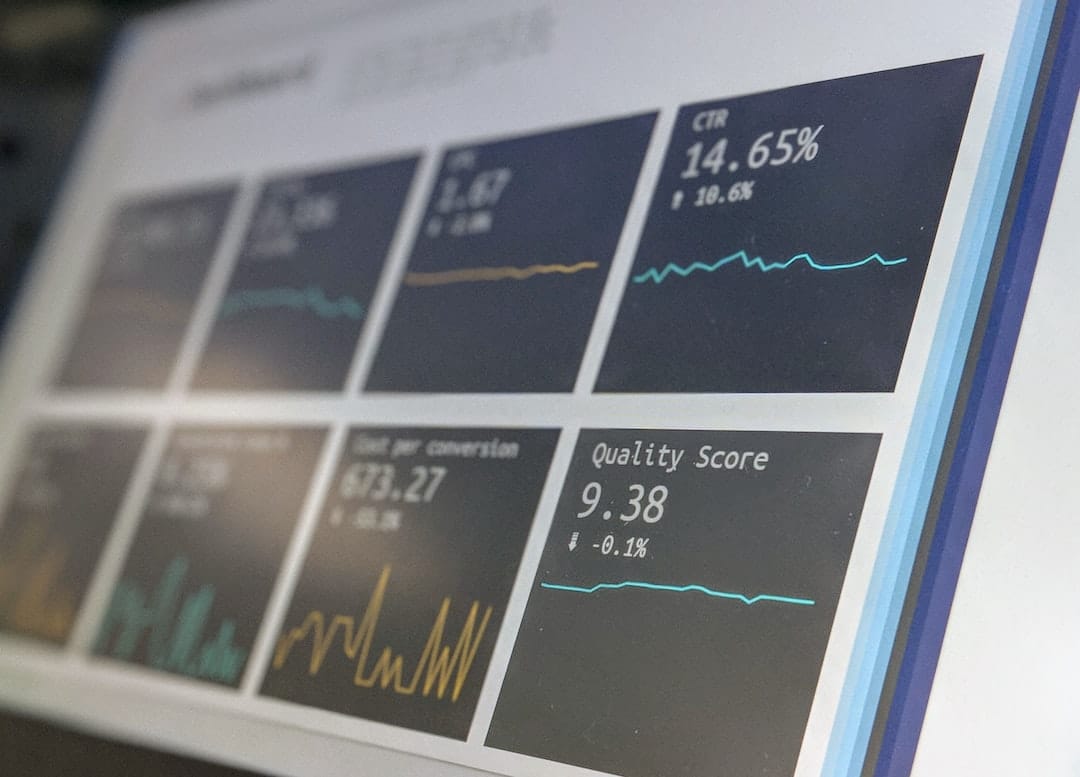The Growing Importance of Social Media in Affiliate Marketing
The increasing significance of social media in affiliate marketing is a testament to the dynamic nature of digital marketing strategies. The COVID-19 pandemic acted as a catalyst for the surge in popularity of affiliate marketing, primarily driven by the exponential growth in online content consumption and e-commerce activities [1]. This transformation has significantly elevated the role of social media platforms in facilitating affiliate marketing, enabling brands and content creators to harness the power of online communities and engagement to drive impactful marketing campaigns. As an example, beauty influencers have utilised Instagram to showcase affiliate products, effectively engaging with their audience and driving substantial affiliate sales.
Moreover, the evolving landscape of affiliate marketing has underlined the pivotal role played by social media platforms in reshaping marketing strategies, particularly in reaching a wider audience and fostering genuine connections with potential customers. This shift towards social media as a primary avenue for affiliate marketing is exemplified by the strategic integration of influencer marketing. Lifestyle bloggers have effectively leveraged their platforms to authentically promote affiliate products, resulting in increased engagement and conversions. As the digital ecosystem continues to evolve, the growing importance of social media in affiliate marketing highlights the need for brands and content creators to adapt and innovate their approaches to effectively leverage the potential of these platforms.
An example of a successful social media affiliate marketing campaign is the collaboration between a popular fitness influencer and a sports apparel brand. By leveraging Instagram and YouTube, the influencer shared engaging content showcasing the brand’s products, leading to a substantial increase in sales and brand exposure. This demonstrates the power of social media in connecting content creators with their audience to drive affiliate marketing success.
How Social Media Platforms Can Be Used to Promote Affiliate Products
The evolution of social media platforms has revolutionised the promotion of affiliate products, providing content creators with unprecedented opportunities to earn commissions by referring customers to brands. This symbiotic relationship is exemplified by the seamless integration of affiliate product recommendations by fashion influencers on Instagram, allowing them to authentically showcase products to their engaged followers and drive affiliate sales. The interactive nature of social media platforms has also empowered content creators to establish personal connections with their audience, enabling them to convey the value of affiliate products in a compelling and genuine manner. This approach has been instrumental in driving higher engagement and conversions, underscoring the effectiveness of leveraging social media platforms for affiliate marketing.
Moreover, the ability to tap into a vast network of potential customers through social media platforms has significantly expanded the reach and impact of affiliate marketing. Content creators have harnessed the power of platforms like YouTube to create in-depth and informative content that effectively promotes affiliate products to their audience. This strategic use of social media platforms has not only facilitated affiliate sales but has also fostered a sense of trust and credibility, ultimately enhancing the success of affiliate marketing efforts. By utilising the unique features and capabilities of social media platforms, content creators have successfully promoted affiliate products, thereby driving tangible results and establishing lasting connections with their audience.
The anticipated investment by U.S. brands in affiliate marketing for the year 2022 is indicative of a significant shift in marketing strategies. With an expected spend of $8.2 billion on affiliate marketing, U.S. brands are poised to continue harnessing the power of affiliate marketing to achieve their business goals. This substantial financial commitment underscores the growing importance of affiliate marketing as a pivotal component of brands’ overall marketing strategies. An example of this growing significance is evident in the way U.S. brands are increasingly leveraging affiliate marketing to reach a wider audience and achieve real business results. The projected spend on affiliate marketing in 2022 reflects a strategic move by brands to harness the potential of affiliate partnerships in driving traffic, increasing sales, and enhancing brand visibility. By investing such a substantial amount in affiliate marketing, U.S. brands are acknowledging the tangible impact and value that this performance-based marketing strategy can deliver.

If you’ve been struggling online this report will open your eyes
The Role of Social Media Platforms in Connecting Affiliate Marketers with Their Audience
Social media platforms have redefined the way affiliate marketers connect with their audience, enabling them to engage, build trust, and foster meaningful relationships. This transformative shift is exemplified by the authentic and engaging content created by lifestyle bloggers on platforms like Facebook and Twitter to effectively communicate the value of affiliate products to their followers. By leveraging the interactive features of these platforms, affiliate marketers have been able to respond to queries, address concerns, and provide real-time feedback, thereby strengthening their connection with their audience and driving higher engagement. This personalised approach has played a crucial role in enhancing the effectiveness of affiliate marketing efforts, underscoring the pivotal role of social media platforms in connecting affiliate marketers with their audience.
Furthermore, the reach and targeting capabilities of social media platforms have empowered affiliate marketers to tailor their content to specific demographics and interests, ensuring that their promotional efforts resonate with the most relevant audience segments. This targeted approach has been instrumental in driving higher engagement and conversion rates, as exemplified by the strategic use of Instagram stories and live videos by influencers to create impactful and memorable experiences for their audience. The ability to deliver tailored and compelling content to a specific audience has significantly enhanced the effectiveness of affiliate marketing on social media platforms, establishing them as indispensable channels for driving meaningful connections and conversions.
The growing importance of social media in affiliate marketing is evident in the way brands and content creators are leveraging these platforms to drive successful marketing campaigns. This strategic approach has been exemplified by the collaboration between a renowned lifestyle influencer and a wellness brand on Instagram, where the influencer seamlessly integrated affiliate product recommendations into their posts, resulting in a surge of traffic and sales for the brand. The success of this campaign underscores the pivotal role played by social media in connecting affiliate marketers with their audience and driving tangible results, highlighting the transformative potential of these platforms in affiliate marketing [3, 4].

Become the Internet Marketing Millionaire’s Next Apprentice!!
Strategies for Effective Social Media Affiliate Marketing
The formulation of effective strategies is paramount to leveraging social media for successful affiliate marketing, with platform selection playing a pivotal role in driving impactful marketing campaigns. Different platforms cater to diverse audiences, and understanding the demographics and preferences of the target audience is essential in selecting the most suitable platforms for affiliate marketing. As an illustration, tech reviewers have strategically utilised YouTube to share affiliate links in their video descriptions, resulting in a surge of traffic and sales for the products they endorse. This strategic use of platforms has enabled affiliate marketers to tailor their content to resonate with their audience, ultimately driving higher engagement and conversions.
Moreover, the creation of compelling and engaging content is instrumental in driving successful affiliate marketing on social media platforms. Content that is visually appealing, informative, and authentic has the potential to capture the audience’s attention and encourage them to take action. This has been exemplified by the high-quality images and engaging captions utilised by beauty influencers on Instagram to effectively showcase the features and benefits of affiliate products, resulting in increased engagement and conversions. The ability to create engaging and authentic content has significantly enhanced the success of affiliate marketing efforts, underscoring the importance of content creation in driving tangible results on social media platforms.
In addition to platform selection and content creation, the integration of influencer marketing has emerged as a powerful strategy for driving successful affiliate marketing campaigns. Collaborating with influencers who have a genuine connection with their audience has had a transformative impact on the reach and engagement of affiliate marketing efforts. This strategic collaboration has been exemplified by the partnership between a renowned travel influencer and a hospitality brand, resulting in increased brand visibility and substantial affiliate sales. The strategic use of influencer marketing has played a crucial role in amplifying the impact of affiliate marketing on social media platforms, highlighting the transformative potential of these collaborations in driving successful marketing campaigns [3, 4].
 The Benefits and Challenges of Using Social Media in Affiliate Marketing
The Benefits and Challenges of Using Social Media in Affiliate Marketing
The integration of social media into affiliate marketing has provided an array of benefits for brands, merchants, and content creators. One of the primary advantages is the ability to reach an extended audience without incurring substantial advertising costs. This has been exemplified by the strategic use of Facebook advertising by e-commerce brands to effectively reach a wider audience without incurring significant advertising expenses. The ability to reach an extended audience through social media platforms has significantly enhanced the reach and impact of affiliate marketing, establishing them as indispensable channels for driving meaningful connections and conversions [1, 3].
Furthermore, social media platforms have provided content creators with the opportunity to earn commissions on products and services they genuinely use and recommend, creating a mutually beneficial relationship between creators and brands. This has been exemplified by the successful collaboration between a renowned fitness influencer and a nutrition brand, resulting in higher conversions and substantial earnings for the influencer. The ability to earn commissions on recommended products has empowered content creators to effectively monetise their platforms, highlighting the transformative potential of affiliate marketing on social media platforms [1, 3].
While utilising social media in affiliate marketing offers significant benefits, it is crucial to navigate the associated challenges effectively. One of the key challenges is the need to maintain transparency and credibility, especially when promoting affiliate products on social media platforms. Content creators must be diligent in disclosing their use of affiliate links to their followers to uphold transparency and trust. Furthermore, the constantly evolving algorithms and policies of social media platforms necessitate a deep understanding to ensure that affiliate marketing efforts comply with platform guidelines and are optimised for visibility and engagement. These challenges highlight the importance of staying abreast of social media platform changes and adapting affiliate marketing strategies accordingly to mitigate potential obstacles [1, 3].

Case Studies of Successful Social Media Affiliate Marketing Campaigns
A compelling case study involves a lifestyle blogger who strategically integrated affiliate marketing into their content strategy on multiple social media platforms. By authentically recommending relevant products and services to their followers, the blogger established trust and credibility, resulting in a high conversion rate for the affiliate links they shared. As a result, the blogger not only earned substantial commissions but also solidified their position as a trusted source of recommendations within their niche. This successful campaign exemplifies the potential of social media affiliate marketing to drive revenue while maintaining authenticity and building strong relationships with the audience [3, 4].
Another noteworthy example of a successful social media affiliate marketing campaign is the collaboration between a popular beauty influencer and a skincare brand. The influencer created engaging content on Instagram, showcasing the brand’s products and sharing personal testimonials about their effectiveness. Through affiliate marketing, the influencer included unique tracking links in their posts, allowing them to earn a commission for every sale generated through their referral. This campaign not only led to increased brand awareness and product sales but also significantly boosted the influencer’s earnings, highlighting the mutual benefits of effective social media affiliate marketing partnerships.
Moreover, the strategic collaboration between a renowned lifestyle influencer and a wellness brand on Instagram has resulted in increased engagement and conversions, underscoring the transformative potential of social media affiliate marketing. By authentically showcasing affiliate products, the influencer effectively engaged with their audience, driving substantial affiliate sales and fostering genuine connections. These case studies exemplify the power of social media in driving successful affiliate marketing campaigns, providing valuable insights and inspiration for industry professionals aiming to enhance their own affiliate marketing strategies and achieve similar success [1, 2].
Best Practices for Brands in Setting Up and Managing Affiliate Marketing Programs
When setting up and managing affiliate marketing programs, brands should carefully consider the payment and commission models to ensure they align with their budget and the overall goals of the program. This involves deciding whether to pay affiliates based on sales, leads, or other key performance indicators, as well as establishing a fair commission structure that motivates affiliates to promote the brand’s products or services effectively. Furthermore, tracking the performance of affiliate marketing programs is crucial for brands to measure the success of their initiatives. This may involve using affiliate management tools, affiliate networks, or implementing coupon codes and UTM parameters to accurately attribute sales to individual affiliates. By effectively tracking the performance of the program, brands can make informed decisions to optimize their strategies and maximize their return on investment [1, 2].
Recruiting affiliates is another critical aspect of managing affiliate marketing programs. Brands should explore various avenues for recruiting affiliates, including leveraging affiliate networks, engaging in cold outreach, or utilizing social media channels to connect with potential partners. By diversifying their recruitment efforts, brands can tap into a wider pool of affiliates with different audiences and promotional approaches, ultimately enhancing the reach and effectiveness of their affiliate marketing programs. Moreover, establishing clear goals and expectations when working with influencers is essential for brands to ensure the success of their affiliate marketing programs. This strategic approach has been exemplified by the successful collaboration between a renowned fashion brand and a network of fashion influencers, resulting in increased brand visibility and substantial affiliate sales. By leveraging these best practices, brands can effectively set up and manage affiliate marketing programs, driving impactful marketing campaigns and achieving tangible results on social media platforms [1, 2, 3].
 The Future Trends for Affiliate Marketing with Social Media Influencers
The Future Trends for Affiliate Marketing with Social Media Influencers
The future of affiliate marketing with social media influencers is set to experience significant transformations as the industry continues to evolve. One of the prominent trends expected to shape the landscape of affiliate marketing is the integration of artificial intelligence (AI) into influencer marketing strategies. AI tools can analyse vast amounts of data to identify trends, consumer behaviour, and audience preferences, enabling brands to make data-driven decisions when partnering with influencers. This trend is expected to enhance the effectiveness of affiliate marketing campaigns by ensuring that the right influencers are matched with the most relevant audience segments, thereby driving higher engagement and conversions.
Moreover, there is a notable shift towards leveraging micro and nanoinfluencers in affiliate marketing. These influencers typically have a smaller but highly engaged and niche-specific audience. As consumers increasingly seek authenticity and genuine connections, micro and nanoinfluencers are poised to play a vital role in driving successful affiliate marketing campaigns. Their ability to establish deeper levels of trust with their followers can result in more meaningful recommendations and higher conversion rates for the brands they promote. This trend reflects a departure from the traditional reliance on macro influencers and signals a strategic move towards more targeted and impactful influencer partnerships in the affiliate marketing space.
Furthermore, there is an increased emphasis on transparency in affiliate marketing activities involving social media influencers. As regulators and consumers alike demand greater transparency and authenticity in influencer marketing, brands and influencers are expected to place a heightened focus on clearly disclosing their commercial relationships. This commitment to transparency is crucial for maintaining trust and credibility with the audience, as it ensures that consumers are fully aware of any promotional content they encounter on social media platforms. By embracing transparency, brands and influencers can uphold ethical standards and foster stronger connections with their audience, thereby contributing to the long-term success of affiliate marketing initiatives.
The anticipated investment by U.S. brands in affiliate marketing for the year 2022 is indicative of a significant shift in marketing strategies. With an expected spend of $8.2 billion on affiliate marketing, U.S. brands are poised to continue harnessing the power of affiliate marketing to achieve their business goals. This substantial financial commitment underscores the growing importance of affiliate marketing as a pivotal component of brands’ overall marketing strategies. An example of this growing significance is evident in the way U.S. brands are increasingly leveraging affiliate marketing to reach a wider audience and achieve real business results. The projected spend on affiliate marketing in 2022 reflects a strategic move by brands to harness the potential of affiliate partnerships in driving traffic, increasing sales, and enhancing brand visibility. By investing such a substantial amount in affiliate marketing, U.S. brands are acknowledging the tangible impact and value that this performance-based marketing strategy can deliver.
 Conclusion
Conclusion
In conclusion, the impact of social media on affiliate marketing has grown significantly in recent years, with the pandemic accelerating the surge in popularity of affiliate marketing due to increased online content consumption and online shopping. Social media platforms have become essential for reaching a wider audience, making them an indispensable tool for content creators, brands, and merchants to drive successful affiliate marketing campaigns.
One example of a successful social media affiliate marketing campaign is the collaboration between a popular fitness influencer and a sports apparel brand. By leveraging Instagram and YouTube, the influencer shared engaging content showcasing the brand’s products, leading to a substantial increase in sales and brand exposure. This demonstrates the power of social media in connecting content creators with their audience to drive affiliate marketing success.
For those looking to excel in affiliate marketing, it is crucial to explore practical strategies and resources to navigate the dynamic landscape of social media affiliate marketing. Affiliate Success Secrets offers valuable insights, tips, and resources to help individuals succeed in affiliate marketing, including articles, product reviews, and webinars. By leveraging these resources, individuals can gain a deeper understanding of best practices and effective techniques for affiliate marketing success. For further details and guidance, readers are encouraged to visit the Affiliate Success Secrets website at Affiliate Success Secrets for more information.

 The Benefits and Challenges of Using Social Media in Affiliate Marketing
The Benefits and Challenges of Using Social Media in Affiliate Marketing The Future Trends for Affiliate Marketing with Social Media Influencers
The Future Trends for Affiliate Marketing with Social Media Influencers Conclusion
Conclusion